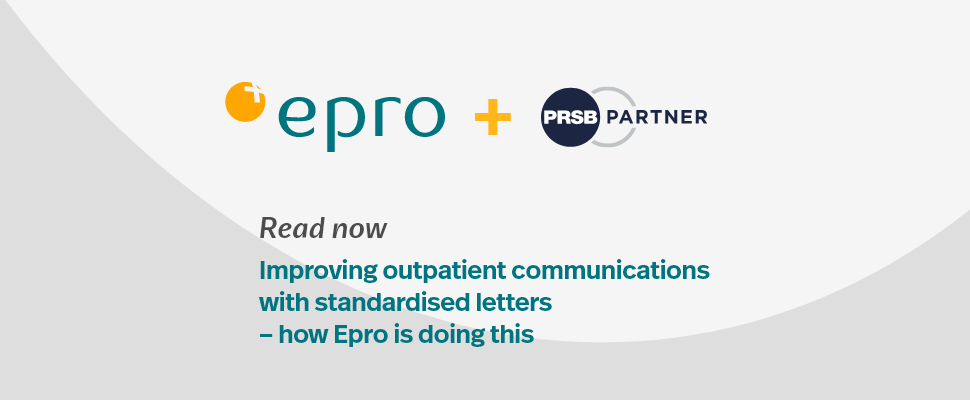
In our lifetimes, we encounter many different healthcare settings at different points in time. A typical example of this is a consultation with a GP leading to a hospital referral for more specialised care, followed by continuing treatment at home or in the community. The efficacy of this pathway with successful clinical outcomes strongly depends on robust information sharing between these points of care. Critically, outpatient letters often serve as an important – and sometimes the only – communication method from one setting to another.
Common challenges
Collating my clinical experience across multiple specialties, three themes consistently hinder effective communication and information sharing in, and between, most clinical settings.
The first one is data fragmentation. Information is often scattered across multiple systems, making it difficult and time-intensive for clinicians to access a reliably comprehensive view of a patient’s medical history and ongoing care issues.
There are also standardisation challenges – inconsistent data formats and terminologies can compromise interoperability between systems – this subsequently places the burden on users to align multiple systems and affects the quality of onward communication/action taken based on this information.
Finally, time constraints – clinicians are often overwhelmed by their individual workload and may not have sufficient time to systematically review and share relevant patient information with colleagues, patients or their relatives. This is particularly problematic for long-term patients with poorly organised historical archives.
Why effective information sharing matters in outpatient communication
When information is shared promptly and accurately, clinicians can make informed decisions for their patients with the right priorities in mind. This will result in great benefits for the following areas:
Patient safety and satisfaction: Effective information sharing reduces the risk of inadvertent patient harm through avoidable errors such as missed diagnoses, unnecessary investigative or therapeutic procedures, and incorrect prescriptions. This is also critical for a high level of satisfaction in the care delivered – both for the healthcare practitioner (given the headspace to make better clinical decisions) and the patient (given the human presence and attention they deserve) – whilst also reducing the common frustration of repeating the same story to multiple clinicians.
Care continuity: This relies heavily on the seamless transfer of information between different healthcare professionals and care settings; increasingly important, as care moves to a pluralistic delivery model in the community beyond the GP practice and hospital. Accurate and timely information ensures that each clinician involved in this process of a patient’s journey can be knowledgeable of the background, current condition, and treatment plan at the point of care – leading to a more cohesive and coordinated approach.
Personalised care: To meet this goal in modern healthcare, all professionals contributing to a patient’s care must have a comprehensive understanding of the person’s relevant personal history, preferences, and needs. Timely and reliable access to this information allows clinicians – and often, multidisciplinary teams – to tailor their care plans to the individual, ensuring that treatment is not just reactive but also proactive.
Start with standards – just like Epro
At Epro, we understand that shared communication becomes more important as care models move away from secondary care dominance for specialist care to a stronger community and third space focus. We aim to set a benchmark for quality and consistency in clinical documentation across the NHS, and this is why we’ve implemented the PRSB’s Outpatient Letter Standard and being the first to achieve conformance with it. Our specific goal here was to improve the clarity, accuracy, and timeliness of outpatient communications, ensuring that all stakeholders—including GPs, specialists, patients, and their relatives—receive information that is both comprehensive and comprehensible.
The conformance assessment process was systematic, rigorous, and thorough – as it should be for a standard that is so critical to patient care. At Epro, we have always prioritised compliance with the highest industry standards and principles of best practice, so the process was well-aligned with our existing quality control and development practices.
Better outpatient communication means better outcomes for people
The adoption of the Outpatient Letter Standard is expected to have a meaningful impact on our customers, service users, and patients. Although its requirements count on a significant shift in the current NHS culture, where a lack of time often compels minimal documentation, conformance by our customers will enhance communication between different care settings. Overcoming this challenge will ensure that all relevant parties have access to the same high-quality information in order to improve care continuity and outcomes; often by encouraging the regular review and reuse of clinical knowledge pertinent to any specific patient.
Ten health and care organisations, including NHS Trusts and Health Boards, are currently using the Epro platform, bringing a total of approximately 58,000 registered users, who will now be able to share standardised outpatient letters. For service users and patients, this means they will receive clearer, more accurate, and more comprehensive information about their care – leading to deeper understanding and engagement with their treatment plans. Ultimately, the standard will contribute to a more patient-centred approach, where individuals are better informed and empowered in their healthcare journey – and we can’t wait to see these benefits.
Chandu Wickramarachchi, 02.10.2024